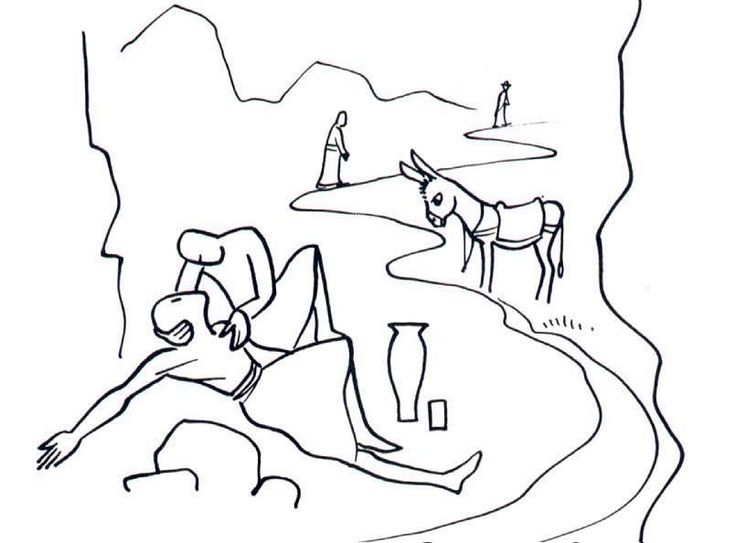Compassion - caring from the heart: a letter from Africa
In our latest International Email, Dr Kizito Shisanya, an international member of our Management Team considers the importance of genuine, compassionate care from the heart.

In life’s journey health challenges to individuals elicit varied responses depending on the state of the patient not only physiologically but in other domains, including psychological, social and spiritual. It is possible to distinguish mechanical care and compassionate care. Integrative Medicine as an approach to care can be easily incorporated by medical specialties, professional disciplines and by all health care systems. This potentially incorporates all care-givers (as is evident in the Samaritan story in Luke 10). Ultimately the patient, the family, the society, and the healthcare worker all play different roles in restoring a “neighbour” to varying degrees of wholeness.
There is no doubt that the anguish caused by ravages of trauma and disease in effect transcends the physical, psycho social and spiritual domains. The extent of individual need although varied is often clear to those with a keen interest surprisingly even irrespective of the professional training. The “neighbour” being helped and the one offering help all have a genuine need to be whole, to serve and to belong. The human state confers on all of us realities of ravaging pain, disease, loss, of want, famine in times of war and peace that call for fellow humans to intervene without causing more harm. The ‘perceiving’ of the problem offers the initial step towards solving it and with it a deep sense of fulfilment. The joy of being of help (alleviating the suffering) drives the effort while the hope of being helped reassures, restores our dignity and at times in the process creating and cementing a strong bond.
To effectively be an instrument of care one brings along not only their knowledge but their experience and personal faith derived from service. Professional experience and grounding in faith confer on the healthcare professional the potential to empathise with patients making it possible to implicitly and explicitly enquire into patients’ psychospiritual spheres instead of merely applying clinical care. We can borrow from the understanding that we cannot give what we do not have. Whole person medicine providers need understanding of spirituality with ability to distinguish the most dynamic element being character based on personal emotional experience/spiritual processes. It is this that connects with the patients at the different wavelengths. To discern this requires the healthcare professional to use the methods that enquire into those experiences. In whole person care the emphasis on all spheres confers added benefit to both the giver and the recipient.
Empathy, compassion and relationships are therefore as important as the professional ability to diagnose, treat and care for the patient. These remove the tag of ‘object’ placed on patients and restores them back to subject. In so doing, we recognise that the subject is removed from his normal state, family beliefs, values and endeavour to bring varied forms of healing to these. The satisfaction of the healthcare provider is in having their patient whole. Disciples came back rejoicing LK 10:17. This is the joy we receive when we see our fellow beings healed. The converse is true - when we identify with the suffering we do not rejoice at their pain. “The spirit of a man will sustain his infirmity but a wounded spirit who can bear?” Proverbs 18:14
When the heart speaks, listen, then respond compassionately and consistently. (Mona M. Johnson)
In ministering beyond the physical and to the heart we create a more conducive setting for effective care and deepened learning that involves the heart. By exploring and championing engagement at individual, psychological, emotional, family, social and community levels this gives an integrated approach and draws from the resource we have both within individuals and outside of them. These dimensions require us to radiate, exhibit and reflect - and in a sense overflow with wells of life to give to others. The interface has attracted significant debate.
It is in this context that comprehensive multi-dimensional and culturally-relevant care offers one of the best health care models. That everyone needs care is not in question then identifying care having been dispensed with it is the provision that becomes our focus. Like the Samaritan story everyone knew the wayfarer had fallen victim to vagabonds. The care needed might not have been the most advanced but the compassion given with it gives the authenticity compared to the care at the inn. Just like the man going from Jerusalem to Jericho needed compassion, so did all the other travellers. But one, a Samaritan, went deep into his heart to help restore his fellow traveller.
Kizito Shisanya
References
Borges MS, Santos MBC, Pinheiro TG. Social representations about religion and spirituality. Rev Bras Enferm. 2015;68(4):524-31.
Integrative Medicine Bravewell Collaborative Report 2 (2010)
Francisca Rego, Rui Nunes The interface between psychology and spirituality in palliative care

